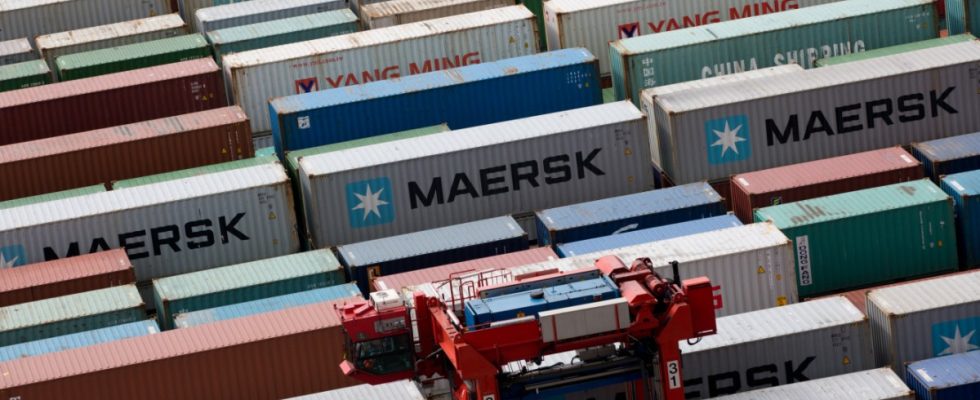Bavaria, land of export surpluses: According to a new study, this former certainty is now somewhat a thing of the past. The Bavarian goods export deficit has increased continuously since 2019, according to the analysis published on Monday by the Munich economic research institute Ifo. So, year after year, more goods were imported into the Free State than, for example, cars or machines made in Bavaria were sold all over the world. One assumes a “permanent trend”. This means that the Free State must “say goodbye to a key hallmark of its rapid post-war economic boom,” said the Chamber of Industry and Commerce (IHK) for Munich and Upper Bavaria. She commissioned the study.
To put it simply, an export surplus usually means that companies in a country are able to assert themselves well in international competition. However, an export deficit is not inherently good or bad from a macroeconomic perspective. The study authors also point this out. What is more important is the background. In recent years, the industry has been hit by the consequences of the corona pandemic and the war in Ukraine. Sometimes global demand weakened, sometimes parts were missing, sometimes high energy prices drove up costs, also to the detriment of the foreign trade balance.
However, a look abroad shows that production in Germany and Bavaria has recently appeared particularly tired. What is striking here is the automotive industry, which is also struggling with the change towards electromobility. According to the analysis, the depth of production in this country remains relatively low, especially in the battery sector. Across all industries, people also prefer to invest in locations and facilities abroad. Investments in Germany, on the other hand, stagnated at a low level.
The new findings do not come as a complete surprise. But they show the first effects of a longer-lasting process. “The structural change is well underway,” said IHK managing director Manfred Gößl. “Politics and business should make the best of him.” The Ifo study recommends, among other things, more education and further training. There is also a great shortage of skilled workers in the engineering and IT sectors – but they could secure long-term value creation in Bavaria, even if the cars and machines they designed were then assembled somewhere else. In addition, there is a need for less bureaucracy and regulation and an expansion of the energy networks. Gößl also sees potential for more exports in the service sector. According to the Ifo study, Bavaria has so far been a net importer.

